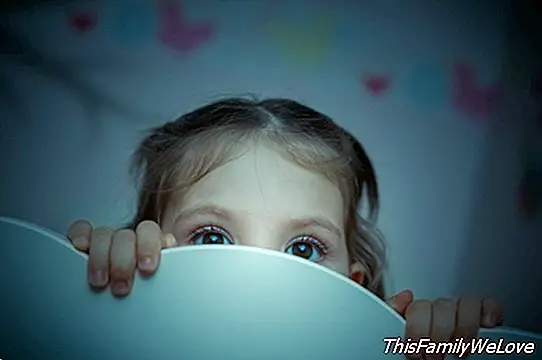Insomnia, what is it and how to treat it?
The hours that a child spends sleeping is an important factor during the growth of children. Enjoy a good rest is essential to face the large number of activities that have to face the smallest of the house throughout the day.
There are many energies that are needed to face a school day and the various extracurricular tasks, not to mention the fatigue involved in playing with friends.
However, sometimes certain problems appear that make it difficult for the child to enjoy this rest during the night. It is normal that there is an awakening during the night in the smallest, the Spanish Association of Pediatrics, AEPED, states that around six months of age the child sleeps up to five hours in a row. However, if the difficulty to fall asleep becomes something that lasts over time, you have to worry as we could be facing a case of insomnia
What is insomnia?
The AEPED notes that you can talk about insomnia when a child has difficulty falling asleep and wakes up numerous times during the night. These problems mean that you do not have the sensation of rest at the time of awakening. This organism also points out that a bad night's sleep is normal and more so in the minors, but if this lasts over time and joins a feeling of sleepiness during the day it could be a case of insomnia. Depending on the cause, you can talk about two types of sleep problems in children:
- Behavioral insomnia: This type of insomnia is talked about when the problem in falling asleep occurs whenever the children are alone. In these cases the beginning of the dream is usually preceded by an activity such as telling a story, rocking the child; or the presence of parents in the room. If any of these elements does not appear at bedtime, rest is very difficult for minors
- Insomnia due to lack of hygiene in sleep: This insomnia occurs when problems in sleep are associated with different actions such as drinking exciting drinks such as caffeinated or excessively sugary drinks, doing activities such as playing video games before sleep or practices that arouse the child's alert level. It can also affect the fact that the time spent napping is excessive or the fact that the sleeping hours of the child are variable.
Factors that prevent falling asleep

In addition to these two types of insomnia, there are other factors that contribute to the difficulty of falling asleep in children:
- Family disorganization caused by conflicting parent-child relationships.
- Stress caused by an excessive workload during the day
- The genetic inheritance. Insomnia is more frequent in children of insomniac parents.
- Share the bed of the parents whenever the child wants.
- Let the child watch television alone or in bed at bedtime or that stays a long time at home.
- Check the tablet or smartphone before sleep.
Diagnosis and treatment of insomnia
Once it has been noticed that the child presents these problems to sleep assiduously it is important to go to the pediatrician to see if indeed we are facing a case of insomnia or if on the contrary there is a greater problem that requires the presence of another specialist. The doctor must see if there is an antecedent in the clinical history since a previous case can explain the situation that the child is currently going through.
During the diagnosis is also important the collaboration of the parents when they talk about some aspects that the child can ignore as their fears or other points to which the child does not matter. For this it is advisable to create a sleep diary that collects all the habits of the child at the time of going to bed and other actions that take place throughout the day and that may hinder sleep.
If it is detected that the child suffers from insomnia it is important to start a treatment in which, in addition to the doctor, the parents will also have to collaborate to put an end to this problem. Among the solutions to sleep reconciliation problems are the following:
- Sleep hygiene measures: It is about encouraging healthy habits such as following a set routines both day and night, avoid actions that raise the level of alert in children as intense games before going to sleep and avoid video games and mobile use moments before going to the bed. You have to take care of the environment to sleep and ensure there is no noise and control the light without light, with a comfortable temperature. Heavy meals, stimulant drinks and long naps are totally prohibited.
- Psychological interventions: they act on behavior and serve to reduce resistance to bedtime and nighttime awakenings. The techniques that are recommended vary according to the child's age.
- Drugs: its use is recommended only in those cases in which other techniques have not worked. There has always been a doctor's prescription and treatment follow-up in case there is a need to suspend or make any change in this medication.
Damián Montero




